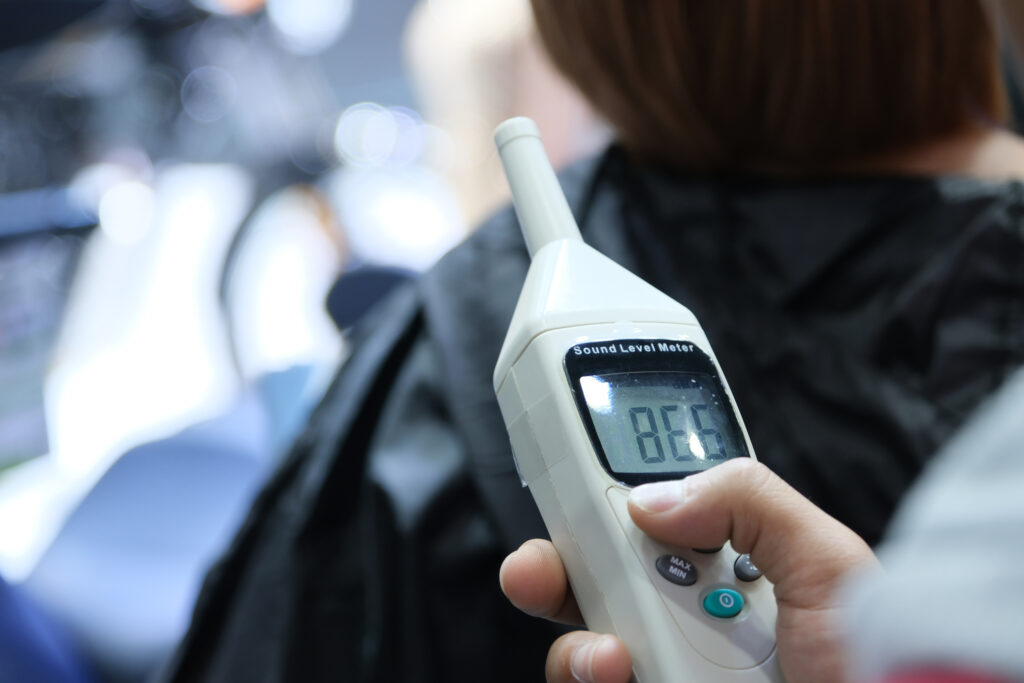Your employees’ health and safety can make or break your long-term business performance. Ignored or unseen risks and long-term exposures can result in costly injuries, regulatory non-compliance, higher turnover, more downtime and reduced productivity — not ideal no matter your business or industry.
Your team must make a strategic effort to control these hazards and keep your operation running as smoothly and efficiently as possible — while prioritizing the safety and wellness of your workers. With so many moving pieces, how can you begin to address it all?
This is where a certified industrial hygienist comes in — to help you keep employees safe, which, in turn, will keep the day-to-day operations of your business running smoothly.
What Is Industrial Hygiene — and Who Can Be an Industrial Hygienist?
Industrial hygiene concerns the health risks of the occupational environment that can affect the overall well-being of workers. These risks range from hazards like asbestos and excessive noise levels, to emerging threats such as COVID-19.
As defined by The American Board of Industrial Hygiene (ABIH):
Industrial hygiene is the science of protecting and enhancing the health and safety of people at work and in their communities. Health and safety hazards cover a wide range of chemical, physical, biological and ergonomic stressors. Those dedicated to anticipating, recognizing, evaluating and controlling those hazards are known as Industrial Hygienists. They are professionals dedicated to the well-being of people — at work, at home and in the community.
Industrial hygiene may also be called occupational hygiene, occupational health or workplace health. It is not, however, the same as occupational medicine. Instead, industrial hygiene focuses on identifying and controlling risks before they become a medical issue for workers.
The law does not define who is eligible to be an industrial hygienist. Rather, to assist employers and the public in identifying individuals who are competent industrial hygienists, ABIH was established in 1960.
ABIH exists to provide a certification program for industrial hygienists in order to uphold a minimal level of knowledge and skills. The ABIH has since become the world’s largest premier certification provider for industrial hygienists.
Health and Safety Challenges
A certified industrial hygienist will apply rigorous scientific methods to evaluate and control hazards in the workplace, including risk assessment tools and information like Safety Data Sheets. Industrial hygienists can also conduct a worksite analysis to evaluate all jobs, operations, machinery and work activities at that site in addition to problem solving for specific activities or work areas.
After a hazard is identified, an industrial hygienist will work with the employer and employees to control or eliminate the hazard. This can include substituting a chemical for a less hazardous one, adjusting work practices to reduce exposure to hazards, utilizing personal protective equipment such as gloves or goggles, and improving ventilation.
The health and safety challenges an industrial hygienist might encounter can vary from improving air quality to reducing hazardous chemical use. High noise levels, for example, in addition to hearing loss can impair a worker’s ability to communicate or hear alarms. This can interfere with job performance or increase the risk of an accident.
Industrial hygiene also encompasses:
- Indoor air quality (mold, sick building syndrome, radon)
- Evaluating and controlling environmental exposures to lead, asbestos or other air contaminants
- Evaluation and control of noise exposures
- Occupational disease (bloodborne pathogens, such as hepatitis and AIDS, tuberculosis, Legionnaire’s Disease)
- Cumulative Trauma Disorders (repetitive stress injuries, carpal tunnel syndrome)
- Non-ionizing radiation (electromagnetic fields, microwaves)
- Compliance with regulatory exposure limits to chemical and physical agents
- Hazardous waste management
- Emergency response planning and community right-to-know requirements
The ultimate goal of the industrial hygienist is to keep workers safe from occupational health risks. They also play a part in complying with federal, state and local laws and regulations pertaining to the work environment.
Maintaining an Industrial Hygiene Program
A good industrial hygiene program involves many components to protect your workers’ health and safety. To meet the goals of your industrial hygiene program, you should seek out a qualified industrial hygienist who can help you identify your program needs and understand how to address them.
From providing assessments to helping you work toward program objectives, Tetra Tech’s industrial hygiene team can support your program. Contact us today at [email protected], and learn how we can support your industrial hygiene program goals.






